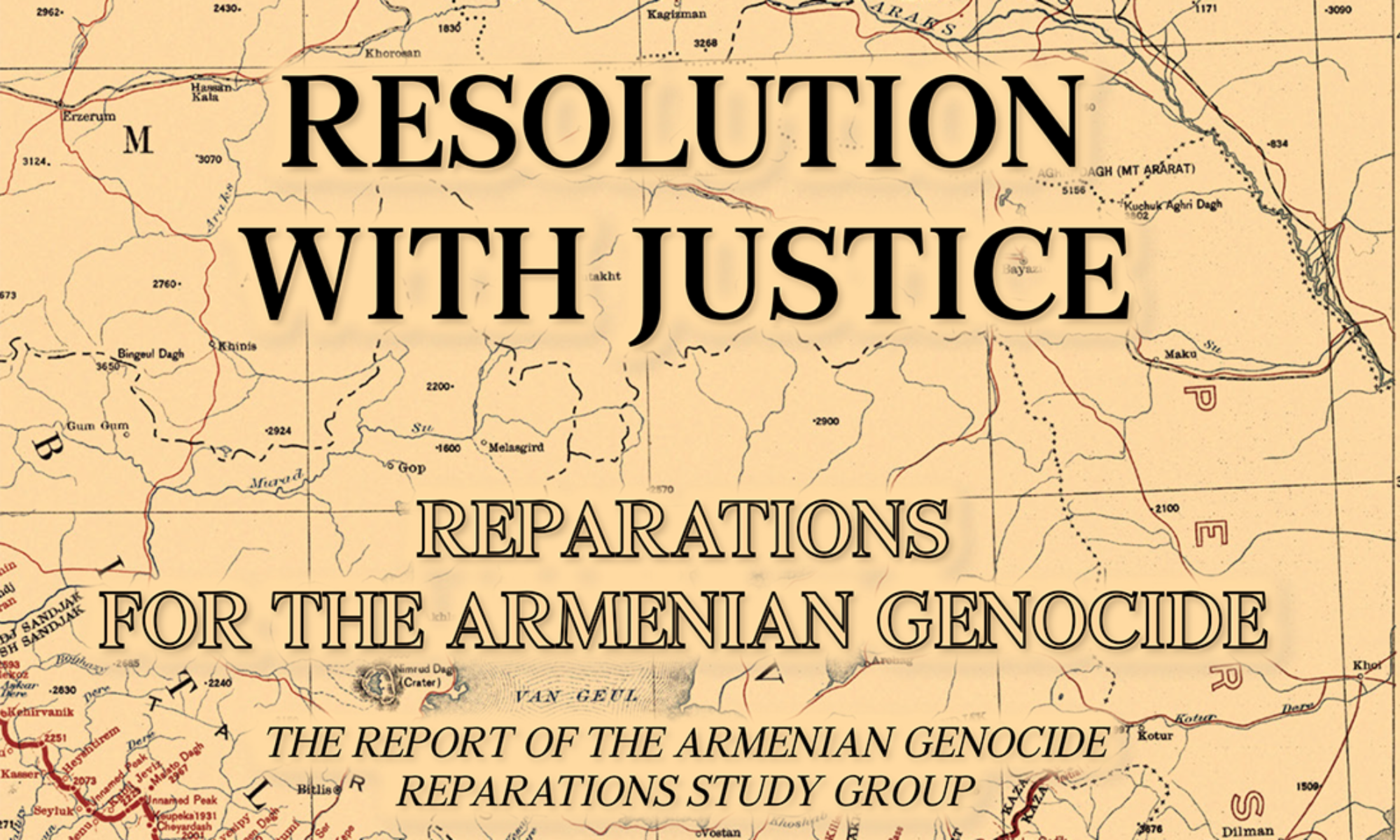
The Twelfth Conference of the International Association of Genocide Scholars took place in Yerevan between July 8 and 12, 2015. The theme of our Twelfth Conference was entitled Comparative Analysis of 20th Century Genocides. On July 12, one concurrent session discussed the “Armenian Genocide Reparations Issue.” Edita Gzoyan, Henry Theriault and Tamar Ankeshian presented papers. These are their papers’ abstracts:
GZOYAN, Edita (Armenian Genocide Museum-Institute, Armenia) – Claiming Reparations for the Armenian Genocide: the European Court of Human Rights
It’s well-established that during the Armenian Genocide alongside with systematic and organized massacres the Armenian population was being deprived of its properties. The Turkish government assured the Armenians that they would be fairly compensated for the confiscated property. However, part of Armenian property was pillaged, another part sold in auctions or distributed to Turks, nomads, Kurds and other Muslim population.
A general principle of international law stipulates that a State is responsible for injuries caused by its wrongful acts and should make reparation in an adequate form. Though approximately a century has passed from those notorious events the issue of reparations is still urgent. Nowadays descendants of those Armenians are trying to seek appropriate remedies for restoration of their violated rights in different national courts. However, whatever decision the national courts reach, the aspect of sovereign immunity of Turkey from foreign court decisions will prevent their enforcement. The most reasonable way to make Turkey compensate is to apply to an institution to which the Turkey is party and which can make authoritative decisions mandatory for compliance. Such forum can be the European Court of Human Rights (ECtHR).
This paper addresses the possibility of successfully claiming reparations for the Armenian properties confiscated during and following the Armenian Genocide before the ECtHR. After careful consideration of the ECtHR case law and admissibility tests for individual applications, the conclusion is that there is a possibility to litigate the case before the ECtHR.
THERIAULT, Henry (Worcester State University, USA) – The Armenian Genocide Reparations Study Group Final Report
The Armenian Genocide Reparations Study Group was formed in 2007 by philosopher Henry Theriault, political scientist and transitional justice expert Jermaine McCalpin, renowned United Nations lawyer Alfred de Zayas, and foreign affairs expert and former Armenian ambassador to Canada Ara Papian.The group has recently produced the first comprehensive study of the issue of reparations for the spectrum of harms inflicted against Armenians as a group by the 1915 genocide. The study includes an account of the harms done, a legal and theoretical analysis of appropriate reparations strategies for such cases, and a concrete proposal for (a) repairs that should be made and (b) the transitional justice mechanisms that can result in these repairs in a productive manner for both the victim and perpetrator groups. The AGRSG report is available at http://www.armeniangenocidereparati ons.info/wp-content/uploads/2015/03/20150331-ArmenianGencoideReparati ons-CompleteBooklet-FINAL.pdf.
This paper will discuss the key theoretical and practical insights of the report as well as highlighting potential limitations and criticisms of the approach it takes. In addition, the paper will discuss the role of the approach taken in the report in future Armenian-Turkish state relations and treatment of the Armenian Genocide.
(NOTE: The report does not analyze Greek or Assyrian reparations claims, due to specialization limitations of its co-authors and the fact that some Armenian groups were specifically asking for this type of analysis, giving the group legitimacy on this particular case, but not the others.)
ANKESHIAN, Tamar (Australia) – Punishing Genocidal Crimes: The issue of reparations and the limited capacity of international justice Limitations of International Justice – The Armenian Genocide
The following paper will analyse the success of current international law mechanisms in achieving justice against crimes of genocide, and those of reparation for victims of genocide. The paper will explore mechanisms in terms of both genocides in general, and then, focus in particular on the Armenian Genocide. Current lack of recognition and reparation of the Armenian Genocide will be a subsequent issue to be discussed.
The method of approach to this analysis includes research into current international laws governing crimes of genocide, academic journals as well as secondhand research conducted in relation to the issue of reparations for victims of the Armenian genocide.
It is found that even though progress has been made in terms of victim’s rights and reparation within the international criminal justice system, there are still significant challenges being faced by the Armenian diaspora in achieving a just resolution to the genocide of 1915.
